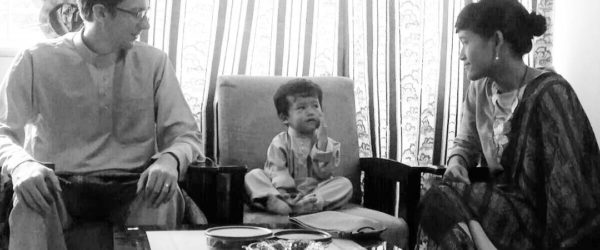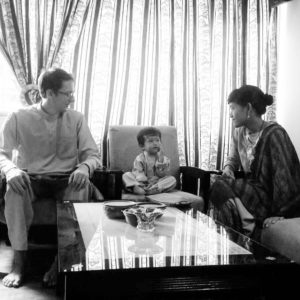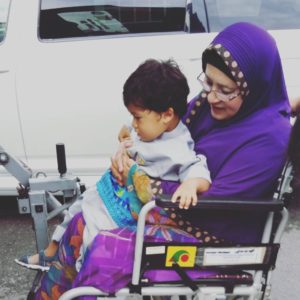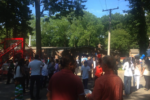When I was young, Eid was all about the new clothes, small gifts of money and eating cookies. ‘Suffering’ through the days of fasting, staying up late the night before Eid, eating breakfast together as a family and getting ready to visit relatives early in the morning.
As a young adult, I discovered the beauty in understanding the spiritual significance of fasting and going for Eid prayers in the morning. Growing up, only the men in my family (and many other Malay families) went for Eid prayers while women were implicitly expected to clean the house and cook the breakfast feast. I consciously broke this tradition by either getting a lift from my father to the mosque on Eid morning, or cycling there myself, especially during my years away from Singapore when I lived alone.
When I was living in the Netherlands, the two Eid prayers of the year were the most significant Islamic events for me. This was because in everyday life there were no salient reminders of living among Muslims. At least, not how I felt in Singapore where even though only 14 percent of the population are Muslim, the two Eids were recognised public holidays and most Singaporeans grew up with a basic knowledge of the religion and practices of their Muslim friends.
Since moving back to Singapore a year ago, I have been unmosqued. This is mostly because of the covert hostility there exists towards children in the mosques, where they should are expected to be seen and not heard (and preferably not even moving too much i.e. playing or being children). My Ramadan goals of attending terawih a few times went woefully unfulfilled, and I didn’t regret it.
This Eid, I chanced upon a friend’s reflection on how isolated she felt as an unmarried single woman, still living with her family, as Eid celebrations centre around visiting and preparing homes to host families. I was aware, as I read about her feeling out of place, of the privilege I enjoyed conforming to society as a married cis heterosexual, complete with a cute kid with no disabilities.
But the truth is that, of course I still don’t conform. Unlike other peers in my family, I do not wear hijab and I don’t display signs of overt religiosity. I don’t fall in the neat dichotomy of being either a dedicated stay-at-home mum or a career woman, settling instead for a hodge-podge of different independent projects that no one seems to be able to understand. I don’t decorate my house and prepare a feast for visitors to come.
Having job that requires me to work on weekends also drastically cuts down the time I have to visit family members, in a society where Eid visiting is still considered valid as long as the month of Syawal is not yet over. Then there is the whole process of dressing up (myself and the family), convincing my parents to go out and arrange the relevant logistics, and hauling everyone around. I still feel responsible for bringing my mother – who can’t walk very well and needs a wheelchair – out to meet her old friends, whom she might very well see just once a year on Eid.
As a young working mother, I am already pulled in many different directions every day. This feeling comes to a peak during family-intense occasions such as Eid. I know that these moments should be cherished and that they will form part of my son’s childhood memories.
But, right now, excuse me while I take off these tropics-unfriendly textiles, switch off my phone and take a nap. Eid can be as happy or as exhausting as I make it to be, and in the interest of self-care, I think I will just do enough to pass.





